Reducing your touring footprint
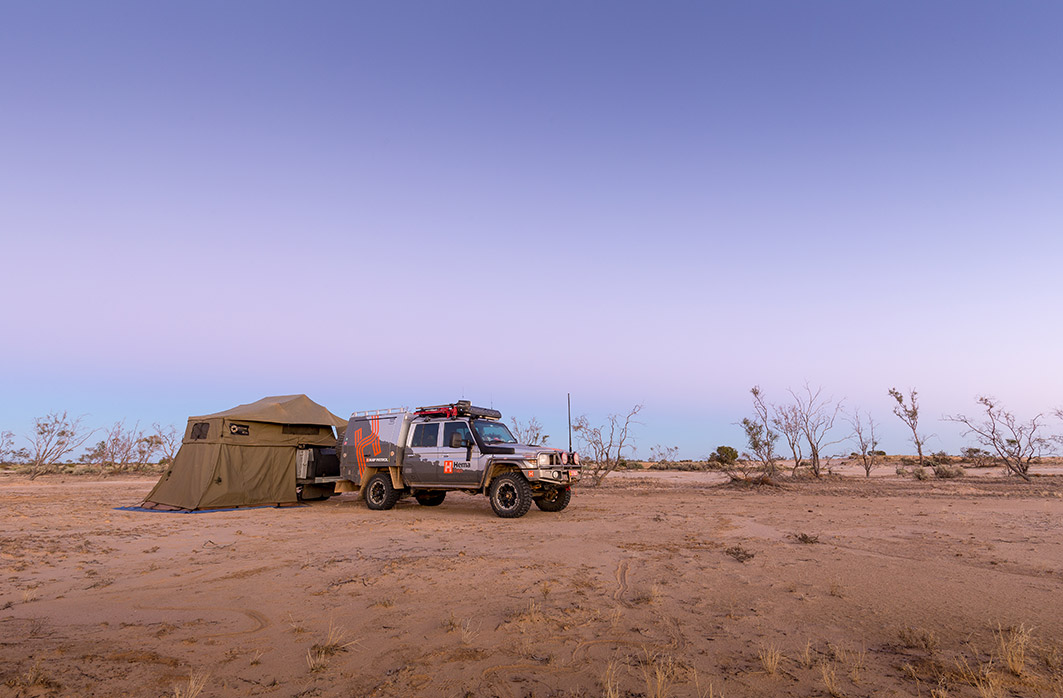 We're privileged to experience some of the more remote wilderness areas in the country, and as users of these spaces it is also our responsibility to look after them. There are a few simple ways to reduce your environmental footprint will help to preserve this natural beauty for generations to come, without stopping you from experiencing it all yourself.
We're privileged to experience some of the more remote wilderness areas in the country, and as users of these spaces it is also our responsibility to look after them. There are a few simple ways to reduce your environmental footprint will help to preserve this natural beauty for generations to come, without stopping you from experiencing it all yourself.
AS YOU WERE
The habits we form at home will get us on the way to environmentally conscious travelling. Avoiding single use plastics and unnecessary packaging is slightly more challenging on the road, where your kitchen set-up can be more prescriptive, but when storage space is at a premium, cutting down on packaging can also help to fit more in. Recycling bins can be hard to come by in certain areas, so it's good to set aside a spot for storing tins, bottles, cardboard and paper until the next one comes along.
EAT LOCAL
Choosing to buy local produce eliminates the environmental cost of having to transport food over long distances and any emissions associated with having to keep it refrigerated for longer. As an added bonus, you'll be eating fresher and directly supporting local farmers.
FUEL EFFICIENCY
One of the most obvious ways you can cut-down your impact is by reducing your carbon emissions – or, burn less fuel. This might mean slowing down a bit and covering less distance each day, or lightening your load and reducing the wind-drag of bulky items that may be strapped to the roof. It's also important to keep your vehicle in efficient running order by having it regularly serviced, as well as keeping your tires properly inflated to reduce road drag.
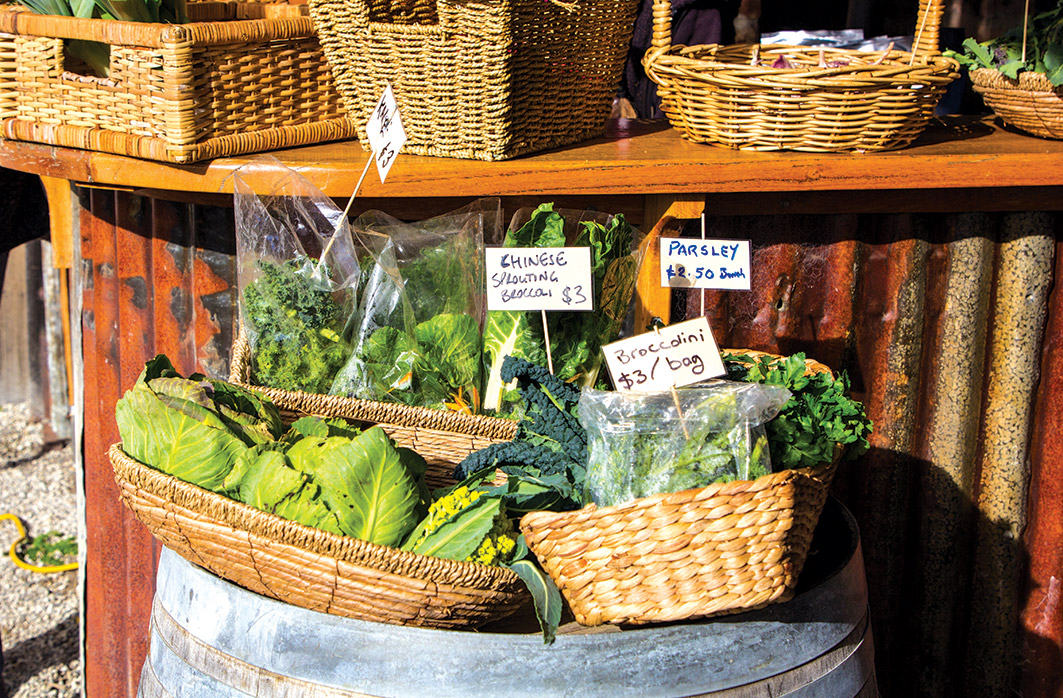
OFF-GRID RIG
By making sure your setup is as self-sufficient as possible, you can spend less time hooked up to mains power and more time in those far-out places. You can install solar panels, deep cycle batteries, efficient appliances and LED lights. This won't merely reduce your reliance on mains power, it will also save you from having to fork out for campsite fees every night – talk about a win/win.
THINK THRIFTY
Margarita night gets a little out of hand and your jug ends up sans-handle after a run in with the floor. Do you really need a shiny new one, or do you just need something to mix up some bloody Marys for a late brunch? Rather than heading to the nearest department store, check out local thrift and op-shops. Buying second hand can account for huge reductions in the emissions associated with the production of a new item, as well as prevent something from ending up in landfill. Otherwise, consider repairing or repurposing things whenever possible – a little creativity can make all the difference.
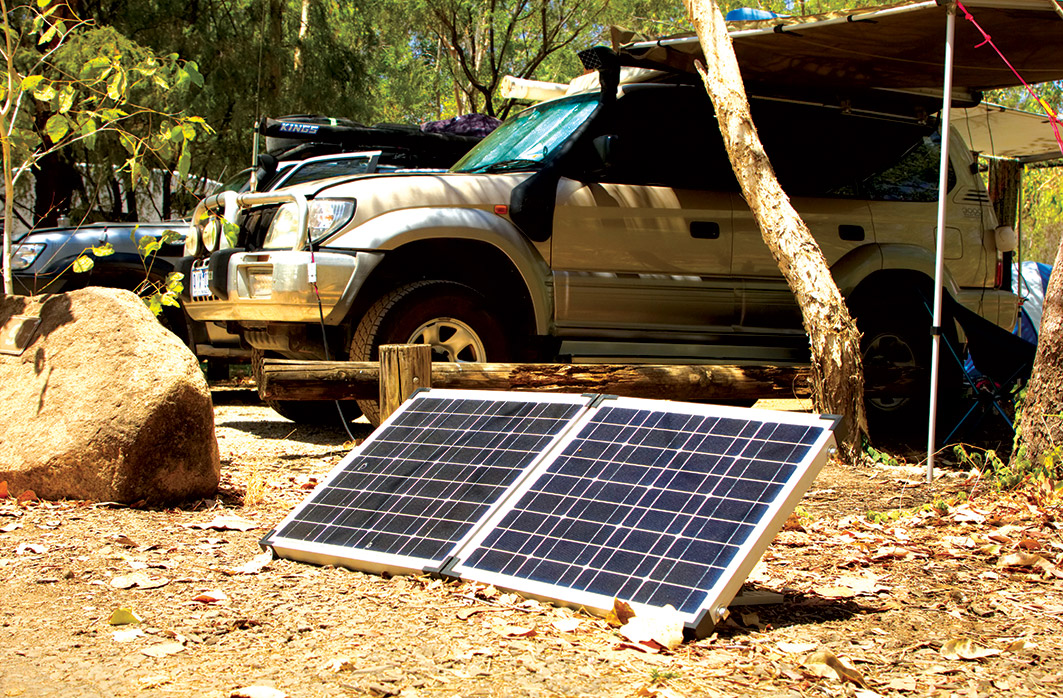
GREY WATER
Modern caravan and camper design is reflective of attitudes towards the disposal of grey water – water from sinks, showers, washing machines and such (as distinct from black water, which comes from the toilet). Unfortunately, the majority of rigs will allow it to simply drip out onto whatever ground they're sitting. A growing number of newer vans will be equipped with a run-off tank, which can be emptied later at a specific grey water dumping point, but they can also be easily retro-fitted.
Unfortunately, there's no hard and fast rule for grey water disposal. Some campsites will only allow self-contained vehicles, some parts of the country have banned dumping anywhere outside of designated points and will enforce those rules without mercy, and many national parks will have guidelines around responsible disposal.
The main thing to remember is that even though it may not be strictly outlawed, indiscriminate dumping can still be incredibly damaging to the environment. In the end, it all just ends up in the nearest waterway or leeching into groundwater – soap, grease and all. It's up to you to minimise the impact your grey water has on the land through storage and disposal, and also by reducing the amount of harsh substances that go along for the ride. Use environmentally-friendly soaps and detergents, and do so sparingly. You can wipe excess grease from frying pans with paper towel or used napkins, reducing both the grease in the run-off and the amount of detergent needed.
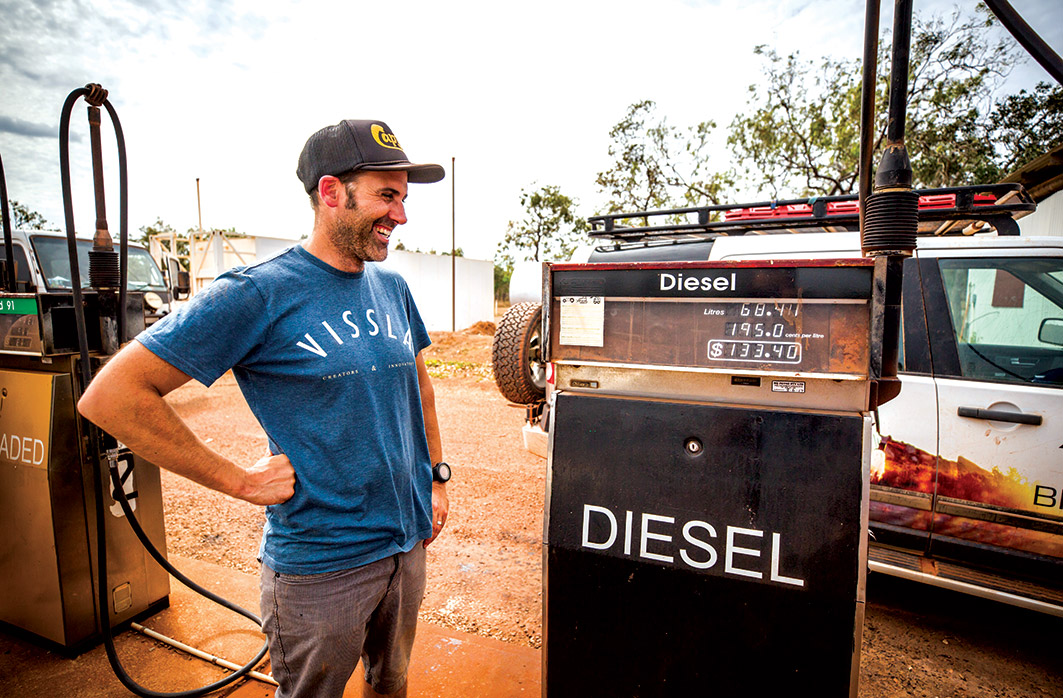
BIO FUELS
Interestingly enough, bio-fuels were what the inventor of the diesel engine, Rudolf Diesel, had in mind when he originally designed it in 1897. The German engineer saw it as an opportunity for countries – particularly developing ones – to stimulate agricultural production. Rudolf Diesel disappeared mysteriously while on a cross-Channel ferry heading for Great Britain (where he was to sign some contracts for using his engine) on September 9, 1913. His drowned body was found two days later. There are a number of theories of what happened. One is that he committed suicide – an unlikely scenario, as his patents on the engine had made him an overnight millionaire. Another is that German government-agents, on the eve of the Great War, threw Diesel over the side in retaliation for his selling engine licences to foreign, possibly soon-to-be belligerent countries. The third conspiracy theory is that the oil cartels, already a powerful economic junta, murdered him to prevent him developing his bio-fuel idea. Significantly, almost all diesel fuel has been petroleum-based ever since. Now it would seem a century later, his humanitarian dream is coming true.
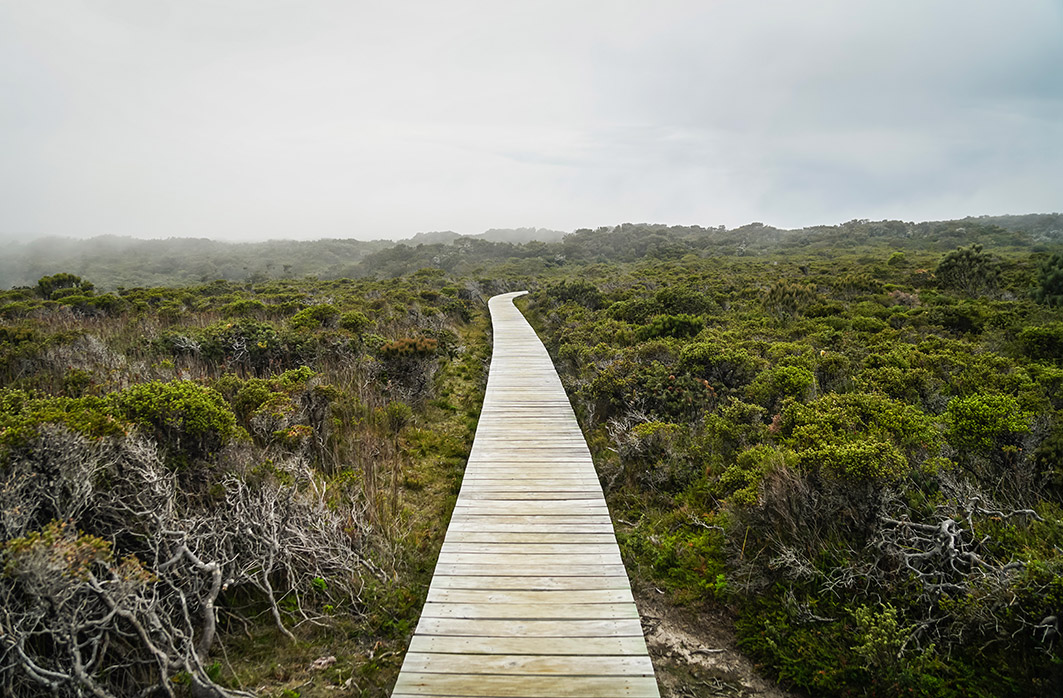
MINIMAL IMPACT WALKING
-As with camping, there are guidelines for ‘treading lightly’ so you leave as little impact on the bush as possible:
- Always stay on the marked track.
- Don’t cut corners or walk too many abreast or you will trample plants and possibly cause erosion.
- Never cross fences or barriers.
- Watch where you are walking to avoid stepping on plants and wherever possible walk on rocks and firm ground.
- Be quiet to avoid disturbing wildlife.
- Don’t leave any litter – even organic waste, like fruit, should be carried out.
- Don’t wear heavy bushwalking boots around your campsite, lighter footwear will cause less damage.


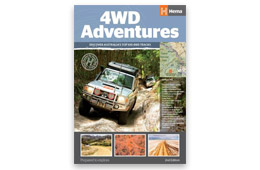
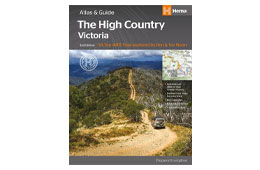
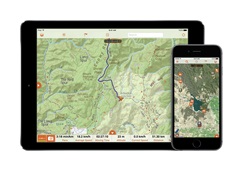
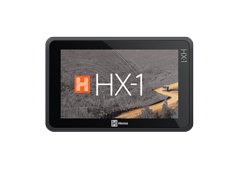







0 comments